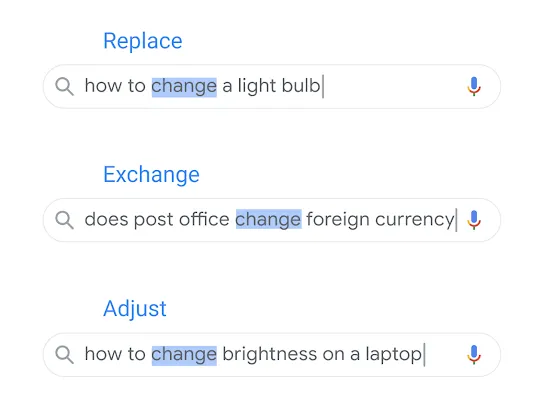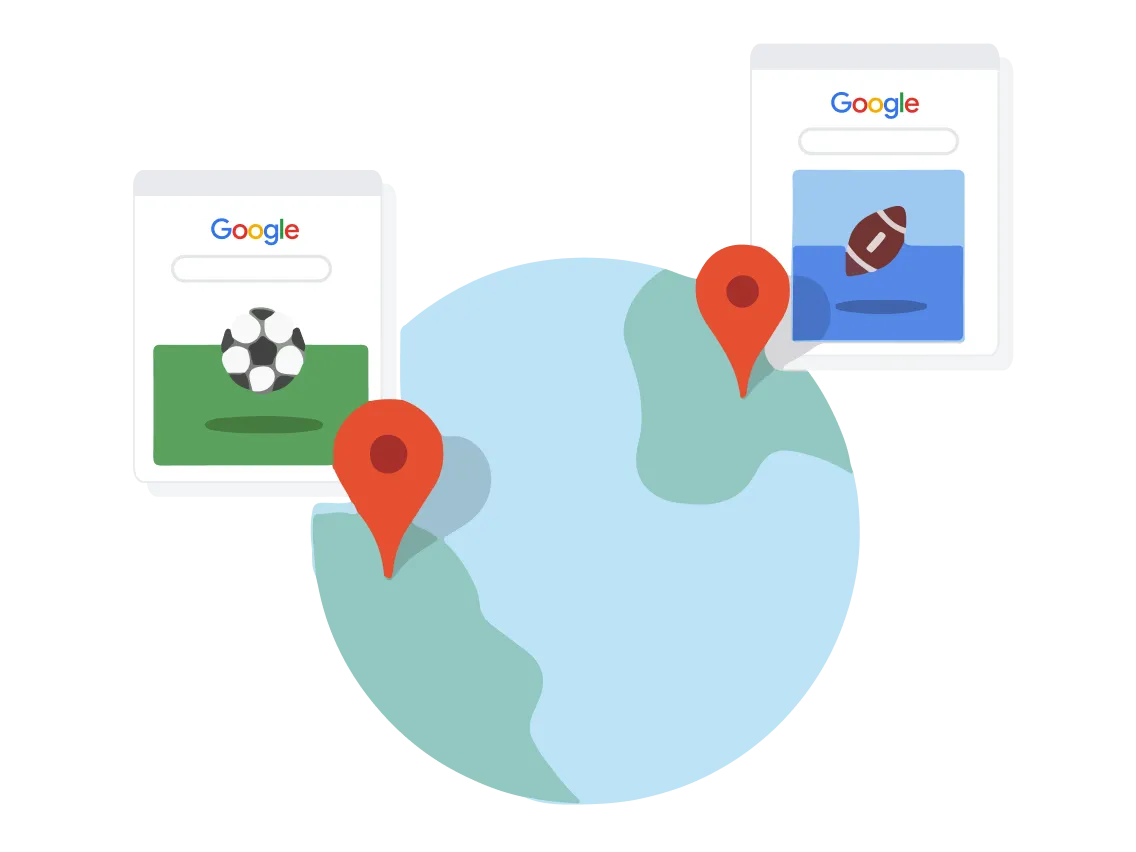Your data in Search
Automatically generating and ranking results
Google’s ranking systems are designed to sort through hundreds of billions of webpages and other digital content to present the most relevant, useful results on the first page in a fraction of a second.

How Google Search continues to improve results
How Search systems work
To give you the most useful information, Search algorithms look at many factors and signals, including the words of your query, relevance and usability of pages, expertise of sources, and your location and settings.
The weight applied to each factor varies depending on the nature of your query. For example, when searching for current news topics, content freshness plays a bigger role than dictionary definitions.
Key Search signals include:
Meaning of your query

This system took over five years to develop and significantly improves results in over 30% of searches across languages.
This involves steps as seemingly simple as recognizing and correcting spelling mistakes, and extends to our sophisticated synonym system that allows us to find relevant documents even if they don’t contain the exact words you used. For example, you might have searched for “change laptop brightness” but the manufacturer has written “adjust laptop brightness.” Our systems understand the words and intent are related and so connect you with the right content.
How Search determines context
-
Keywords
If you used words in your query like “cooking” or “pictures,” our systems figure out that showing recipes or images may best match your intent.
-
Language
The language of your query determines how most results will be displayed - for example, a search in French returns French-language results.
-
Localization
Our systems can also recognize many queries have a local intent. So when you search for “pizza,” you get results about nearby businesses that deliver.
-
Current events
When you’re searching for sports scores, company earnings, or stories of the moment, you’ll see the latest information.
Relevance of content
Next, our systems analyze the content to assess whether it contains information that might be relevant to what you are looking for.
The most basic signal that information is relevant is when content contains the same keywords as your search query. For example, if those keywords appear in the headings or body text of a webpage, the information might be more relevant.
Our systems look for quantifiable signals to assess relevance, but they are not designed to analyze subjective concepts such as the viewpoint or political leaning of a page’s content.
We also use aggregated and anonymized interaction data to assess whether search results are relevant to queries. We transform that data into signals that help our machine-learned systems better estimate relevance. Just think: when you search for “dogs,” you likely don’t want a page with the word “dogs” on it hundreds of times. With that in mind, algorithms assess if a page contains other relevant content beyond the keyword “dogs” - such as pictures of dogs, videos, or even a list of breeds.

Quality of content

After identifying relevant content, our systems aim to prioritize those that seem most helpful. To do this, they identify signals that can help determine which content demonstrates expertise, authoritativeness, and trustworthiness.
For example, one of the factors used to determine quality is understanding if other prominent websites link or refer to the content. This is generally a good sign that the information is trustworthy. Aggregated feedback from our Search quality evaluation process helps to refine how our systems discern the quality of information.
Content on the web and the broader information ecosystem is constantly changing. We continuously measure and assess the quality of our systems to ensure that we’re achieving the right balance of information relevance and authoritativeness to maintain your trust in the results you see.

Context and settings

Search aims to connect human curiosity to knowledge as accurately as possible. To do this, we use information such as your location, past Search history, and Search settings to determine what is most relevant for you in the moment. For example, someone searching “football” in Chicago will likely see results about American football and the Chicago Bears; in London, that search might turn up results about soccer and the Premier League.
Our systems can recognize if you have visited the same page multiple times before and bring that page to the top of your Search results. Or, if you are using the same query, we may show new perspectives and top stories from across the web. As with all information on Search, our systems will take the same approach to surfacing high-quality information based on factors like expertise, experience, authoritativeness, and trustworthiness.
These systems are designed to match your interests, but they are not designed to infer sensitive characteristics like your race, religion, or political party.
We’ve made it easy to adjust your settings and stay in
control, whether you’re following specific topics to get the
most timely information, or looking for firsthand knowledge
from creators and consumers. You can always see which
results are personalized, and change your settings at any
time.
Control your Search activity
You can control what Search activity is used to improve your Search experience, including adjusting what data is saved to your Google account. You can update or change the personalization settings or preferences in your account at any time.
You can also find content preferences like SafeSearch in settings. These help you make a choice about whether search results include graphic content that may be shocking for some users.
Discover more
-
ORGANIZING INFO
How Search organizes information
-
RIGOROUS TESTING
Always improving your experience
-
DETECTING SPAM
Keeping you safe on Search
-
TECHNOLOGY
Discover what happens when you Search



